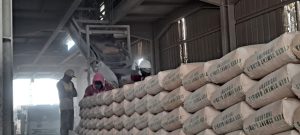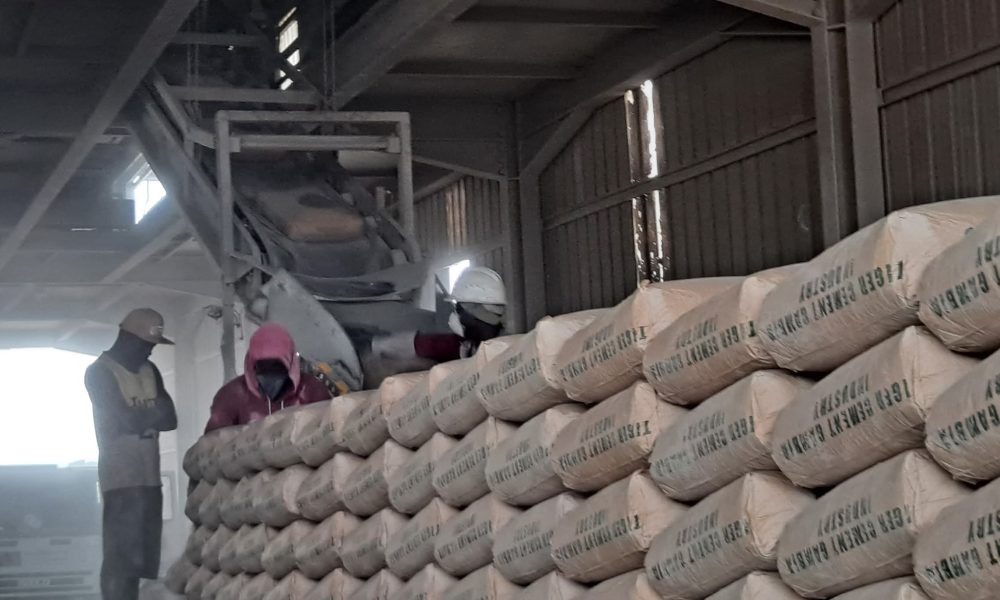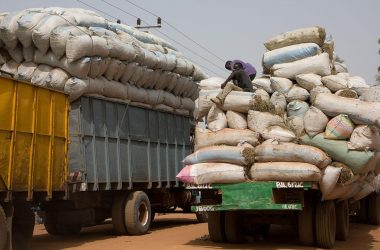The Jah Oil company has always cited external factors as reasons for the Gambia’s “intermittent” cement shortages, but the company has come home in its blame-game as it now pointed a finger of accusation at the Gambia Port Authority (GPA) and Al Bayrak for the lack of the success of it’s ambitious cement shortage mitigation/elimination strategies. These strategies, Hydara said, were custom-built to ensure consistency of service while at the same time making sure quality does not drop.
In 2024, the Gambia government increased the tax on an imported bag of cement from D30 to D180. The government said at the time that the trade levy was introduced to boost local cement production and to shield “local producers” such as Jah Oil, Salam and Gacem cement factories from the might of huge, established multinational companies. At the time of the imposition of the hefty cement levy, the three local cement factories promised that they would meet the country’s cement need at all times at affordable prices while quality would not slip.
However, since the introduction of the levy several months ago, cement shortages and price hikes have now become common features of the cement market.
The Managing Director of Jah Oil company, Momodou Hydara, would one day attribute the shortage and price hikes to the Russia-Ukraine war and the other day on the muscularity of the dollar against the dalasi. Even the US President Donald Trump has been blamed for the perennial cement shortages and price volatility in The Gambia. Hydara sometime this year told the Gambia Radio and Television Services (GRTS) that Trump’s trade levies on the countries that America does businesses with was also affecting the cement supply chain.
But Hydara has now found culprits at home in the entities of the Gambia Port Authority and Al Bayrak consortium. Hydara blamed the two entities for the continued instability in the Gambia’s cement market, saying despite the “massive investment” that the company made to live up to its pledge of satisfying the country’s cement demand, Banjul Port’s “inefficiency” has been hindering progress.
Hydara enumerated what, he believed, are milestones reached by Jah Oil as it struggles to fulfill its pledge.
“We hear a lot of things said about cement but what I can tell you, as a company, we always stand by what we say;to supply adequate and be able to import and distribute. And it’s because of that pledge we made, it forced us to do massive investment recently. We didn’t only build a 200,000 capacity factory in Bafuloto; it’s a new factory scheduled to be commissioned before the end of the year, but we also built another 100,000 capacity in Farafenni. The President even visited. They started testing yesterday, testing the machine to put everything on. We are pushing to make sure before the end of the month, we are rolling some bags out. All these things we do because we promise and want to make sure cement is available in every corner of the country,” Hydara told Coffee Time With Peter Gomez on Thursday.
He added: “We did not stop there. In this country, we used to import 30 to 35,000 metric ton vessels but the price The Gambia is looking for, that is low and affordable prices, we couldn’t bring those vessels anymore and the demand has also tipped up. And because of that we started to go for a bigger vessel of 60,000 tons. That’s what we are bringing right now.”
Hydara, however, said Jah Oil’s efforts would not yield the desired results if the Banjul Port’s efficiency is not enhanced.
“There is a Catch 22 on that [bringing a bigger vessel]. You bring this vessel to maintain the low price and high quality and we are bringing this from world renowned producers, that is Turkey or Vietnam. We have about 115,000 metric tons of cement sitting at sea currently. Two vessels, one with 60,000 metric tons and another one with 55,000 metric tons.
With all these investments, we have always engaged the government to tell them that to be able to make our operations effective and seamless, we’ve done our part to invest massively by expanding our operations by building two new factories. The total capacity under Jah Oil today is 400,000 bags a day when you put all these factories into motion. Twice the cement need. Now, the problem is this… You did all this investment costing millions of dollars…We invested in a vessel that is MV Christine purposely to be able to lighten up these vessels. You have these heavy vessels at sea, they couldn’t berth because the Gambia Port Authority’s channel is very shallow, it’s only 9.5m. These vessels need about a 13,14 to 15 metres draft.”
Hydara said all the investments that Jah Oil made would be unnecessary “if at all the port does not carry out a massive” channel dredging which, he opined, “is well-overdue because I believe, if I am not mistaken, the last time they dredged that channel was before independence”.

“So, now it’s well overdue. The siltation has covered a lot of things around the berthing area and the anchorage is also getting shallower by the weeks, by the months and by the year. These are the reasons for the intermittent cement shortages,” he explained.
Meanwhile, the steep increase in the tax on a bag of imported cement from 30% to 180% by the Gambia government continues to cause suffering across the land.





